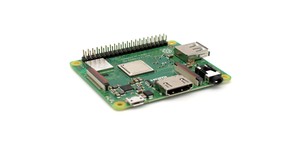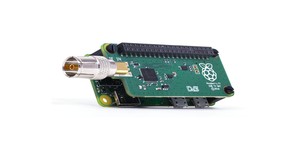Raspberry Pi Foundation launches Pixel for PCs
December 22, 2016 | 11:05
Companies: #arm #raspberry-pi-foundation
The Raspberry Pi Foundation has announced it is branching out from the world of ARM-based single-board computers and launching a version of its Raspbian Linux distribution for x86-based desktops and laptops.
The Debian-based Raspbian Linux, built exclusively for the Raspberry Pi family of ARM-based single-board computers (SBCs), was overhauled back in September to feature a customised desktop environment the Raspberry Pi Foundation dubbed Pixel, or the Pi Improved xWindows Environment, Lightweight. Designed to offer a more user-friendly and attractive interface than previous releases without harming performance even on the single-core 700MHz Raspberry Pi Model A+ with its original 256MB RAM configuration, Pixel has proven popular, and now it's available for those who haven't even picked up a Pi.
'Back in the summer, we asked ourselves one simple question: if we like Pixel so much, why ask people to buy Raspberry Pi hardware in order to run it? There is a massive installed base of PC and Mac hardware out there, which can run x86 Debian just fine,' explained Foundation co-founder Eben Upton in the launch announcement. 'Could we do something for the owners of those machines? So, after three months of hard work from Simon and Serge, we have a Christmas treat for you: an experimental version of Debian+Pixel for x86 platforms.'
Launched for free download and as a live-booting DVD on the cover of this month's MagPi Magazine, Debian+Pixel is missing some of the functionality of Raspbian proper - Wolfram Alpha and Minecraft Pi Edition are not included, for starters, as they are licensed only for use on Raspberry Pi hardware - but provides the familiar Pixel interface on almost any hardware. Compiled for i386, Debian+Pixel should run on any x86 machine from the last couple of decades providing there is at least 512MB of RAM available - though some newer machines with non-standard UEFI implementations may struggle to boot the OS.
The launch comes following Upton's decision not to develop a 64-bit version of Raspbian for the BCM2837-based Raspberry Pi 3. 'This [ARMv8] is a completely different instruction encode, and so to access that benefit, you'd have to have two operating systems,' Upton said in an interview at the time. 'Until someone can show me a real, concrete benefit, I'm not going to carry the load of having two operating system distributions.'
More information on Debian+Pixel can be found on the Foundation's official website.
The Debian-based Raspbian Linux, built exclusively for the Raspberry Pi family of ARM-based single-board computers (SBCs), was overhauled back in September to feature a customised desktop environment the Raspberry Pi Foundation dubbed Pixel, or the Pi Improved xWindows Environment, Lightweight. Designed to offer a more user-friendly and attractive interface than previous releases without harming performance even on the single-core 700MHz Raspberry Pi Model A+ with its original 256MB RAM configuration, Pixel has proven popular, and now it's available for those who haven't even picked up a Pi.
'Back in the summer, we asked ourselves one simple question: if we like Pixel so much, why ask people to buy Raspberry Pi hardware in order to run it? There is a massive installed base of PC and Mac hardware out there, which can run x86 Debian just fine,' explained Foundation co-founder Eben Upton in the launch announcement. 'Could we do something for the owners of those machines? So, after three months of hard work from Simon and Serge, we have a Christmas treat for you: an experimental version of Debian+Pixel for x86 platforms.'
Launched for free download and as a live-booting DVD on the cover of this month's MagPi Magazine, Debian+Pixel is missing some of the functionality of Raspbian proper - Wolfram Alpha and Minecraft Pi Edition are not included, for starters, as they are licensed only for use on Raspberry Pi hardware - but provides the familiar Pixel interface on almost any hardware. Compiled for i386, Debian+Pixel should run on any x86 machine from the last couple of decades providing there is at least 512MB of RAM available - though some newer machines with non-standard UEFI implementations may struggle to boot the OS.
The launch comes following Upton's decision not to develop a 64-bit version of Raspbian for the BCM2837-based Raspberry Pi 3. 'This [ARMv8] is a completely different instruction encode, and so to access that benefit, you'd have to have two operating systems,' Upton said in an interview at the time. 'Until someone can show me a real, concrete benefit, I'm not going to carry the load of having two operating system distributions.'
More information on Debian+Pixel can be found on the Foundation's official website.

MSI MPG Velox 100R Chassis Review
October 14 2021 | 15:04








Want to comment? Please log in.